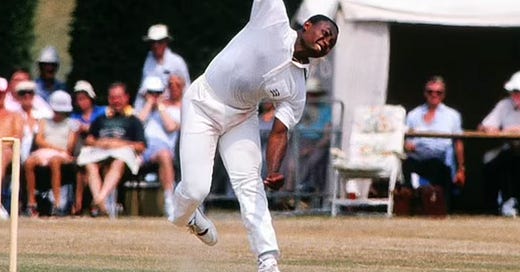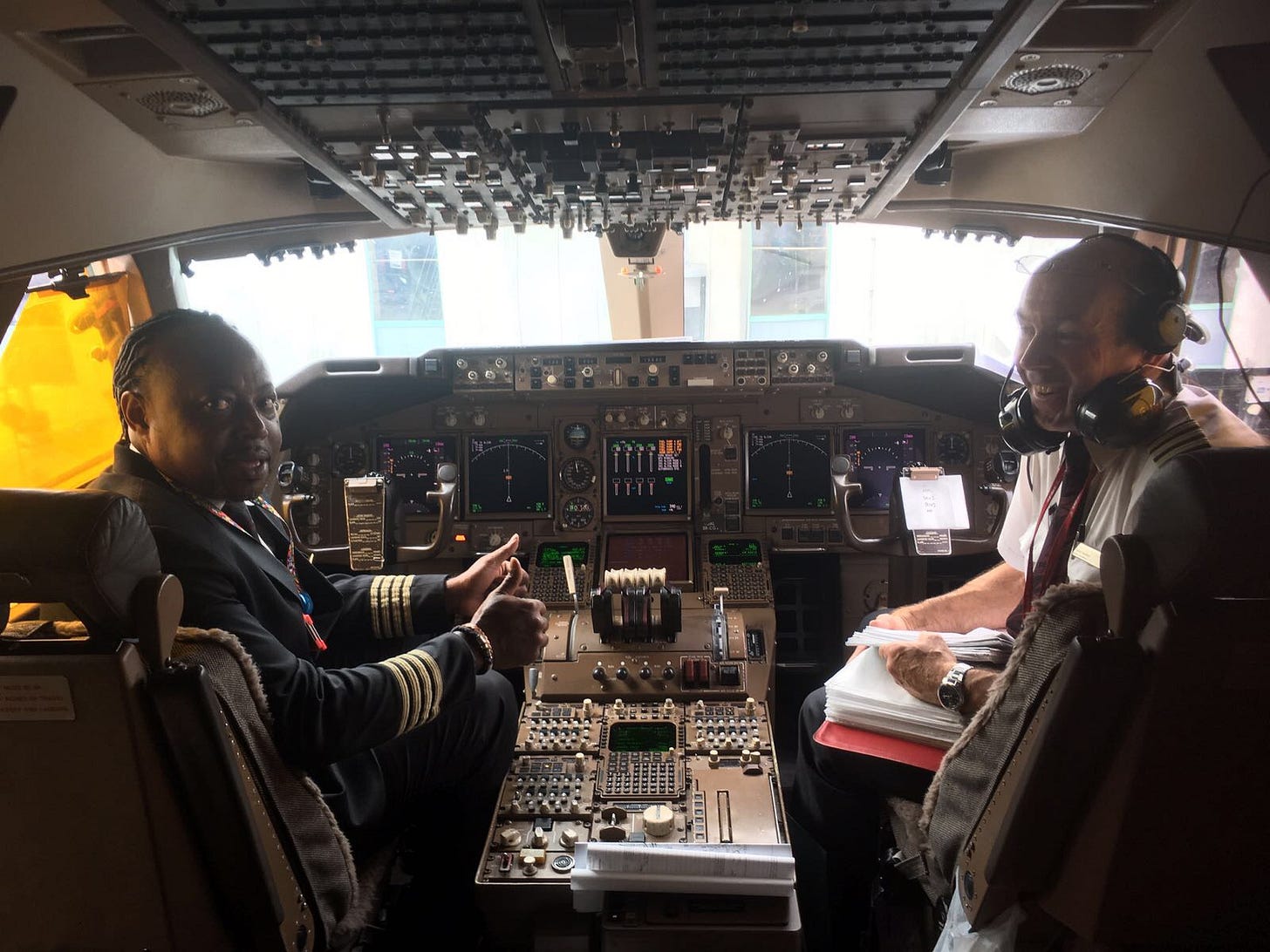One Very Determined Man
Former fast bowler turned Virgin Atlantic pilot Ricky Ellcock has defied a series of life threatening conditions. His autobiography is a truly uplifting tale of overcoming adversity
Ricky Ellcock was one of the fastest bowlers in England in the early 1990s.
“If you ask most little boys, what they would want to do in life they would probably say I'd like to be a professional sportsman. Well, I've done that. The next thing they might say is I'd like to be a pilot. Well, I've done that too. I've done two of the things that probably 80% of little boys would want to do. I'm very very lucky.”
So says Ricky Ellcock, looking back on a fascinating life that was alternately triumphant and traumatic. It began in a simple ‘hut’ (his description) with no toilet or running water in Barbados, featured a scholarship to Malvern College, a first class debut (for Worcestershire) while still at the school, hitting England captains on the head with rapid bouncers, crippling back injuries, a transfer to the Middlesex team I was part of followed by an England call-up and then a career cruelly terminated by a ravaged spine when only 25. Undeterred, he invested in his second love - flying - retrained as a commercial pilot and became Virgin Atlantic’s first ever black captain, flying jumbos and 747s all over the world. Until his new world came crashing down with a freak accident causing a brain hemmorhage, requiring four major operations.
Four years on he is completely recovered, raring to go for his next challenge (hopefully regaining his pilot’s license) and has produced an engrossing book about his life BALLS TO FLY, published by the eminent cricket writer Stephen Chalke. The great thing about this book is the detail. The recall of his early life in Barbados (“we used the plastic fruit on the dinner table to play street cricket - the orange, the apple, the pear - we couldn’t afford a ball..”) arriving at Malvern College in the early 1980s - the only black kid in the school - having never seen snow, trains, toasters or TV remote controls - his memories of his first years in the county game, the triumph and torment of life on the circuit, all are recounted with precision and humour.
His desperation to play for England in the country of his birth - the West Indies - despite being struck down again by back spasms - is regaled with touching irony in the latest Analyst podcast. “I went and got acupuncture. I got in a van and went off to This Magic Woman somewhere in St Lucia. I was clutching at straws. Somebody told Mickey Stewart [the England manager] and it was at the height of AIDS and he went absolutely apeshit. ‘I can’t believe you’d let anyone stick needles in your back,’ he said. Someone phoned the hotel and said look WD-40 could get rid of your pain. So I went out and bought a bottle of WD-40 and sprayed that on my back. That’s how desperate I was! I still wake up with nightmares about it now, and this is nearly 40 years later.”
Investing in a flying (second) career was a natural progression to an an early fascination with aeroplanes, and his progression to commercial pilot would have astonished his father (who died when Ricky was 16.) “Me and him were talking in the house one afternoon when I was about 12 and he said to me what are you going to do when you get older? And I said, look, I’d quite like to fly airplanes actually. And he just looked at me and he said ‘black people don't fly airplanes. Have you thought about, you know, being a doctor, lawyer, engineer or something, something that's really achievable?’ It had never occurred to me that being black could stop you from doing anything. So it was sort of motivation to prove my father wrong.”
Ellcock (left) in command of a Virgin Atlantic 747
Having been taken on as Virgin Atlantic’s first ever black pilot in 1997 (13 years after the company was formed) he then had a flourishing 20 year career, proudly christened when he flew a jumbo from London Heathrow back to his Barbados homeland. But, tripping on the steps down from a plane to the Virgin staff bus in 2018 and rupturing his knee triggered something called a subdural haematoma - basically a brain hemmorhage - and he was 24 hours from death. It was touch and go through four brain operations over an eight week period before he finally came out the other side.
Four years on he is optimistic about the future and reflective of an intriguing journey that he has plenty of time to document. “This book has been sort of written during adversity. A lot of it was written when I came back from the England tour during those depressive years. I stopped when I was off learning to fly and all of that and then you know when my knee was in plaster for nine months, I wrote some more. And then the brain injury came along and I wrote a lot over that period of time and then of course came covid and I had a heap of time to finish it. It’s been basically a 30 year process.”
He finishes the book with the famous Nelson Mandela quote - “IT’S NOT IMPORTANT HOW MANY TIMES YOU FALL, BUT HOW MANY TIMES YOU RISE.” Ricky Ellcock’s life is the embodiment of that. Look out for the next chapter…







Have read the book and it has all the making for a great movie about fighting through all the barriers to reach your goals. A great read Would be a blockbuster movie